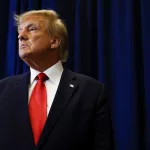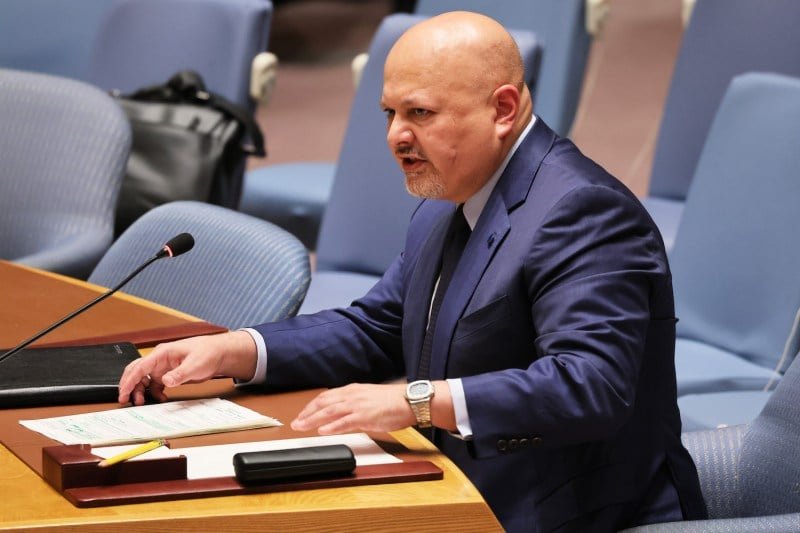A federal judge dealt another blow to former President Donald Trump by blocking his effort to circumvent the confirmed-nominee process and keep Alina Habba in the job of New Jersey’s chief federal prosecutor.
U.S. District Judge Matthew Brann declared in a full-fledged, 77-page opinion published Thursday that Habba “is not lawfully holding the office of United States Attorney,” having operated without lawful authority since her 120-day designation lapsed on July 1.
Consequently, her tenure ends immediately, denying the former personal attorney to Trump any continuing power to supervise the office the administration sought to control by repeatedly trying to renew her interim stay after a panel of district judges clipped her wings in July.
The opinion, comprehensive in its recitation of governing precedent, makes clear that the methods employed to extend her authority, or to create a contrived vacancy that the President could unilaterally fill, “do not comport with the appointments clause or the spirit of the statutes.”
Brann concluded, “Faced with the question of whether Ms. Alina Habba is lawfully performing the functions and duties of the office of the United States Attorney for the District of New Jersey, I conclude that she is not,” striking a decisive final blow to the administration’s unorthodox strategy.
Judge Brann stayed his final ruling, giving the Trump administration room to weigh an appeal, yet the tremors may ultimately ricochet throughout the entire executive branch anyway. Brann flagged the two-month sweep of Habba’s New Jersey filings, warning they “may be declared void,” and ordered that she be barred from supervising any of the office’s lawsuits going forward. The office processes thousands of criminal and civil matters simultaneously.

Judge Brann— a Republican and Obama-era appointee on the Pennsylvania Middle District — issued an opinion that may extend beyond his reach. U.S. attorneys’ offices in Los Angeles, Nevada, New Mexico, and upstate New York, where the current administration has evaded the usual Senate vote and nomination procedure, could find themselves relying on the same vacancy questions the Brann opinion raises.
Attorney General Pam Bondi announced that the Justice Department will “immediately appeal,” and she added in a social-media statement that Habba “is doing incredible work in New Jersey — and we will protect her position from activist judicial attacks.”
The office of Alina Habba, the assistant U.S. attorney named in the ruling, had no on-the-record response at the time.
Brann ruled in a declaratory posture, prompted by motions filed by counsel for defendants whose cases in New Jersey hinge on the legality of Habba’s tenure. Defense attorneys moved under the premise that the Trump administration could not have successfully continued her interstitial service without a Senate confirmation.
That argument enjoyed momentum against the backdrop of recent uncertainty over interim appointments, which the Department of Justice has interpreted in at least three contradictory internal memoranda.
The judge refused to dismiss the counts against Julien Giraud and Cesar Pina, but he warned that any prosecutor proceeding against them “under the supervision or authority of Ms. Habba shall face immediate disqualification.” The court’s published order technically binds only the two defendants, yet the accompanying opinion reaches outward, targeting Ms. Habba’s entire professional footprint.
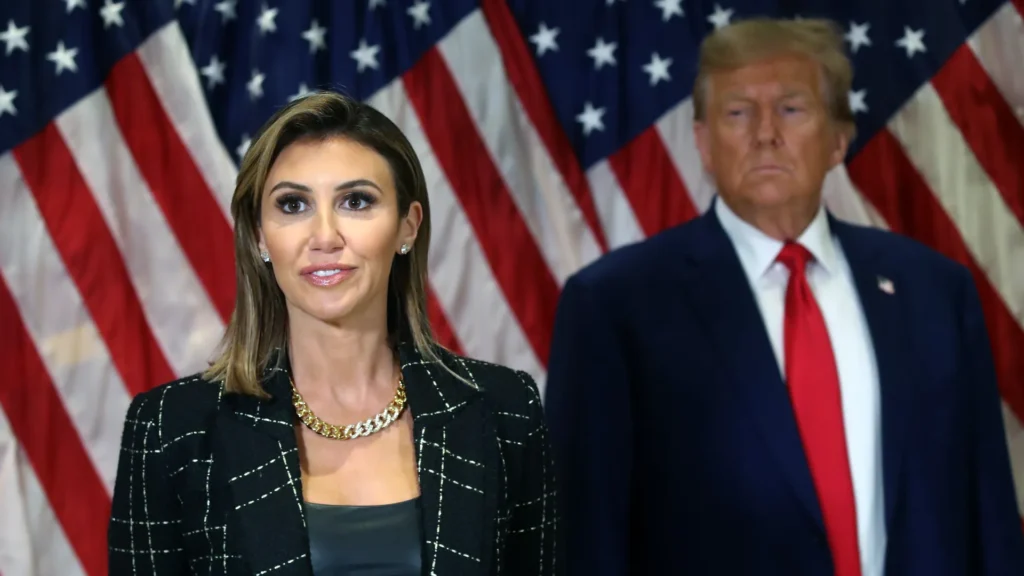
“I would consider it profoundly reckless for the department to permit Alina Habba to remain the lead Justice Department official authorizing indictments or any other filings,” asserts James Pearce, the registered counsel for the New Jersey Criminal Defense bar.
In the wake of the judge’s words, Deputy Attorney General Todd Blanche, the department’s second-in-command, recently affixed his signature to selected New Jersey pleadings, a deliberate, if rare, gesture meant to insulate those cases from future questions of legitimacy should the indictments bear only Ms. Habba’s name.
Brann’s decision doesn’t stop at the National Labor Relations Board; it shadows several other executive branches, said Anne Joseph O’Connell, the Stanford Law professor who studies how officials get their titles within the executive branch. O’Connell pointed out the modern executive runs—and often is forced to run—by what the president, his agents, and the courts call “delegation” because the confirmation process that the Senate is supposed to manage is sometimes paralyzed.
The subtleties of Brann’s decision, she warns, illuminate the authority of officials who have to rely on the same implicit logic. These subtleties reach the woman at the other end of the Mall, the administrator of FEMA, and possibly others whose titles were not granted through pro forma hearings.
“If this decision survives the appellate stage, it would dramatically reorganize the customary authority of acting officials, a practice equally entrenched in Republican and Democratic administrations,” asserted Joseph O’Connell.
The opinion does not clarify which individual now possesses the lawful authority to manage the United States Attorney’s Office for the District of New Jersey.
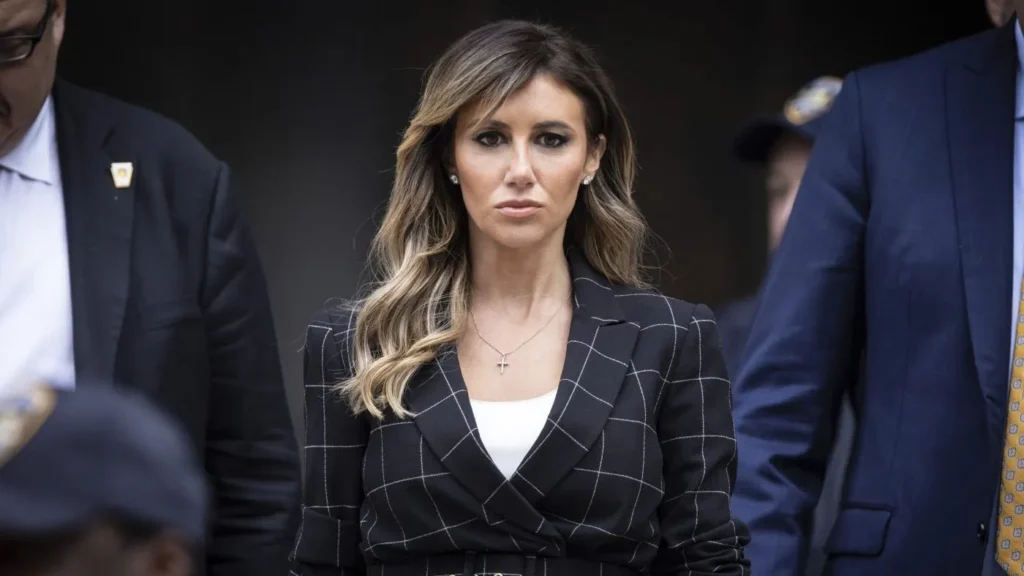
In late July, the district court judges, believing that Acting U.S. Attorney Alina Habba’s interim tenure lapsed on or shortly before July 22, invoked a dormant but venerable authority—available in the statutes for a century and a half—to appoint a temporary chief for the office.
The judges selected Desiree Leigh Grace, an experienced career prosecutor of Republican affiliation, who had been sidelined by the Trump administration shortly thereafter. Grace subsequently lodged a grievance, arguing that her dismissal was “entirely unwarranted and directly punitive in response to the District Court’s naming of me as United States Attorney on an interim basis.”
At that moment, high-ranking Trump officials, including Rosen and Bondi, contended that the judiciary had exceeded its constitutional bounds. Chief Judge Brann, however, found that the district court had acted within its prerogatives and expressly repudiated the executive’s jurisdictional complaint.
Brann subsequently concluded that the Trump representatives failed to appreciate the statutory limit on the duration for which Alina Habba might serve as interim chief of the prosecutor’s office and that they therefore extended her tenure by precisely twenty-one days beyond the allowed period.
General Pam Bondi designated John Giordano as the acting United States Attorney, and he took the oath on March 3. Giordano departed the acting assignment shortly thereafter to accept the position of the United States
Brann further observed that the transitional authority granted to foreign officials extended to Alina Habba for a specified duration; upon her substitution on the 28th of March, that authority merely continued to run, rather than resetting the statutory clock upon the replacement of one interim appointee with another.
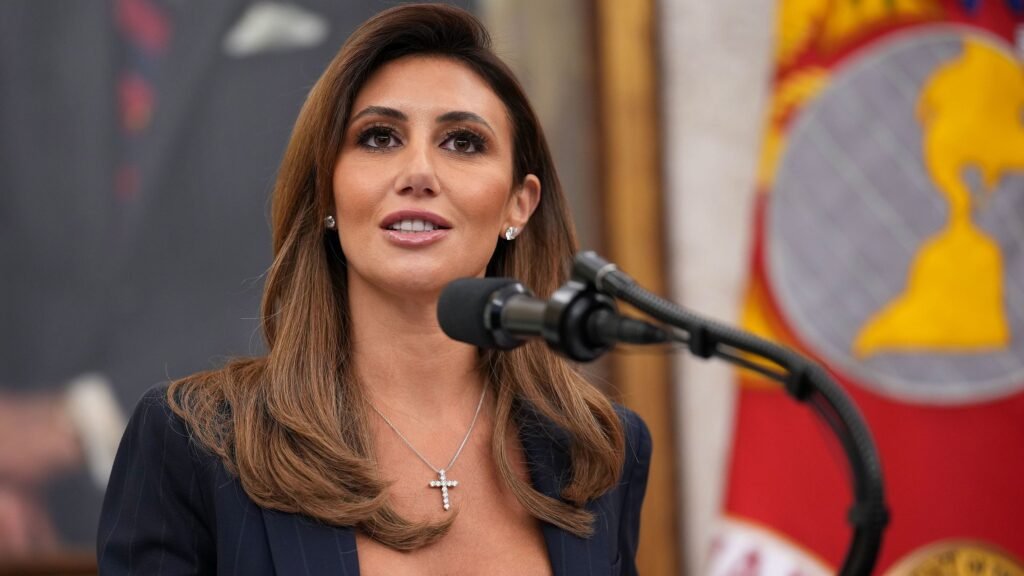
Brann, therefore, concluded that the 120-day interim appointive period governing the acting United States Attorney had continued to run on the original cadence and had consequently expired on the 1st of July 2025.
In consequence, Brann declared, Habba lacked any lawful capacity to fulfil the functions of the alleged United States Attorney from that July date, and persisting through the 24th of July. His ruling establishes that the assignment of authority effectively lapsed upon the calculated expiration of interim tenure, leaving the office without a legally sanctioned occupant until the July vacancy was filled.
Brann himself expressed the interim void that existed in the Kara dated Office on the final office extension and thus would appear to contradict Habba’s direction of her original post, July Hammer months.
The vacancy continued until, in the same perceptive judgment, the judges confirmed the July 22 selection of Grace and persisted until her dismissal was enacted on July 26. However, the ruling does not clarify who lawfully presides over some functions in the interim period that stretches from the lapse of Habba’s authority to the consummation of Grace’s incumbency; the must be the first assistant, who was Postu marked for selection by Habba herself.
Brann contended that permitting a succession of stacked interim appointments would obviate the constitutional requirement of Senate confirmation. “Carried to its logical conclusion,” he asserted, “the President could occupy the United States Attorney’s office for the duration of a presidential term with nominees of his personal preference, all the while evading the Senate’s compulsory advice and consent.”
The opinion, moreover, contains passages that may furnish useful precedents for litigants opposing the Trump Administration’s persistent efforts to centralise authority within the Executive branch.
“Congress is to speak unequivocally when it alters the distribution of governmental power, and the judiciary ought to scrutinise with trepidation Executive assertions that the Constitution may be construed to redistribute to its own advantage authority previously assigned to other institutions,” Judge Brann stated.
Ms. Habba arrived at the New Jersey bar’s governing bodies with a checkered reputation long before the former President designated her to lead the district’s Executive branch. Off the public radar, and while still a civil litigator, she resolved litigation concerning a young former basso of a Trump-designed enterprise who claimed that she had been stalked and designated for sexual-economic submission by a supervisor.
Habba’s complicity in the transaction, her allies would later insist, consisted solely of pressing the employee to rescind crippling liabilities by signing a standard NDA and accepting the trivial terminal sum of fifteen thousand dollars.

Immediately following her formal elevation, Habba appeared on a leading conservative advisory platform and declared that her advisement would “turn the Garden State blood-red,” a comment that immediately unsettled anchor modelling of prosecutorial neutrality. Subsequent indictments and advisements of disposition within the New Jersey district, moreover, failed to clarify the ethical latitude that such a “red” posture might entail.
In May, attorney Habba formally accused Newark Mayor Ras Baraka of trespassing on the grounds of a privately operated immigrant detention facility located in Newark, despite the Mayor having received prior authorization to enter the secured area and vacating the premises of his own accord after being warned of a forthcoming arrest.
Subsequently, she accused Democratic Representative LaMonica McIver, an ally of Mayor Baraka, of felony assault against peace officers arising from the melee that occurred during Baraka’s apprehension.
Concurrently, Alina Habba formally abandoned the attendant charges against Baraka, prompting a magistrate judge’s sharp rejoinder suggesting that the arrest served a demonstrably partisan objective.
Hours before Judge Brann’s anticipated ruling, Habba publicly lauded the Appellate Division’s voidance of a $500 million civil fraud verdict against her client, posting that the disposition of the fraud proceeding constituted, in her assessment, an “unequivocal affirmation of the meritless inquisition.”
Attorneys Girard Krovatin and Abbe Lowell, whose retention of co-defendant Pina remains the most recent news thread in the wider matter, characterized the government’s prior posture as “denud[ing] this government of its juridical shield.”
Their statement cited the “fundamental obligations” attendant to the prosecutorial function, and characterized the government’s use of the unauthorized Habba as both “statutorily burdensome” and “due-process destructive.”
They added that they welcomed the “meticulous exposition” in the bench memorandum, and that, in their scholarly opinion, the jurisprudential result “unambiguously” rejected the “unconventional and partisan” manner in which the current Administration alters the confirmation procedures.









